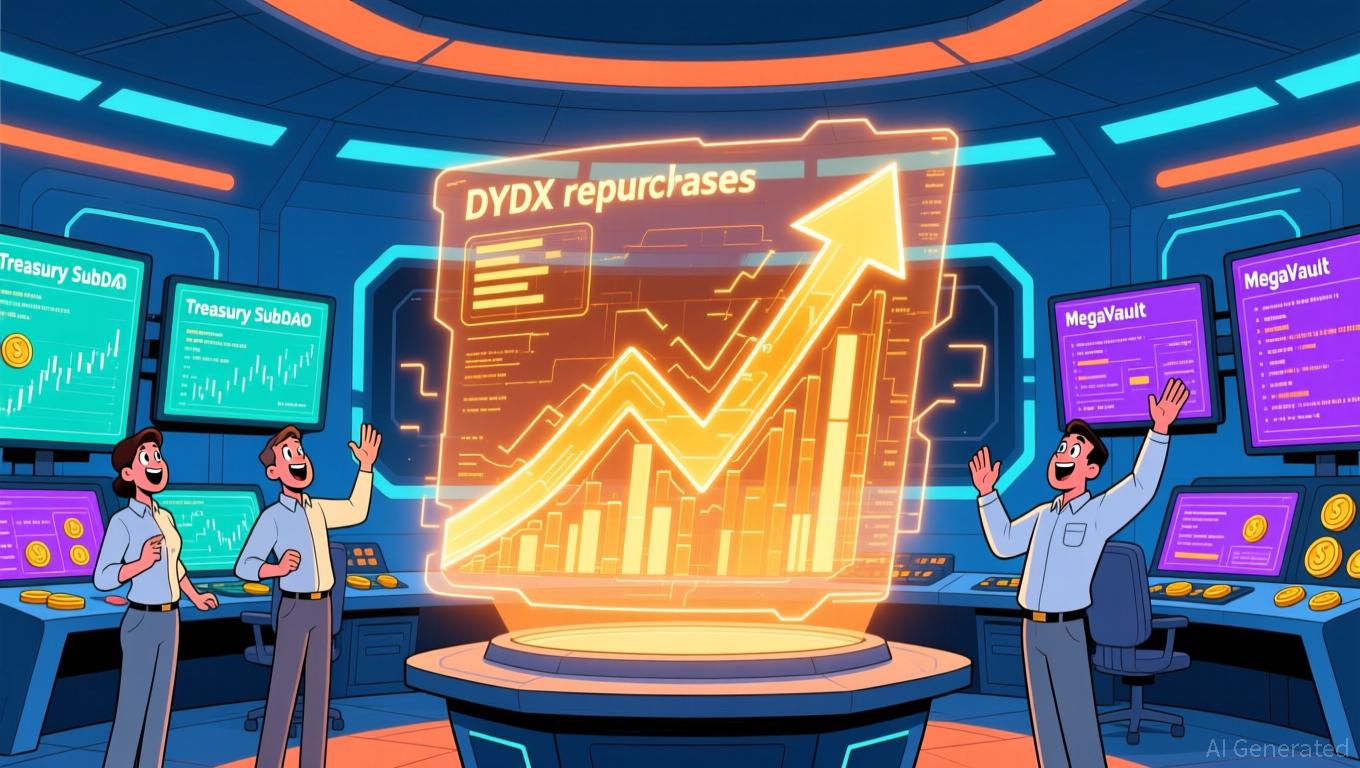Bitcoin News Update: Clear Regulations Drive Cryptocurrency’s Shift Into a Mainstream Asset Category
- SoFi becomes first FDIC-insured bank to offer consumer crypto trading via app, enabling Bitcoin , Ethereum , and Solana transactions from protected accounts. - U.S. regulators advance crypto integration through OCC custody guidelines and SEC's Token Classification Framework, clarifying legal status of digital assets. - Trump's tariff policies triggered 2.4% crypto market cap surge to $3.5T, highlighting macroeconomic ties to crypto volatility and institutional adoption trends. - Challenges persist as HIV
The American financial sector is experiencing a major transformation as both established banks and regulatory bodies move quickly to incorporate cryptocurrencies into the core of traditional finance.
Clearer regulations are driving this evolution. The Office of the Comptroller of the Currency (OCC) released new guidelines for 2025, allowing banks to provide custody and transaction services for crypto, as noted in the Bitget report. Meanwhile, the SEC is progressing with its "Token Classification Framework," which will clarify which digital assets are considered securities, according to a
LookonChain analysis . Chairman Paul Atkins explained that the framework will be based on the Howey Test, a Supreme Court decision from 1946 used to identify investment contracts, as mentioned in the LookonChain analysis. This regulatory foundation is intended to clarify the legal standing of digital assets, a crucial factor for broader institutional participation.Market forces are also influencing the crypto landscape. Former President Donald Trump’s recent pledge of $2,000 tariff dividends for U.S. citizens led to a 2.4% jump in the overall crypto market capitalization, reaching $3.5 trillion within a few hours, according to a
Yahoo Finance report .
Nonetheless, obstacles remain. HIVE Blockchain Technologies Ltd (NASDAQ: HIVE) experienced a 10.99% drop in its share price due to mining challenges and regulatory ambiguity, as reported in a
StocksToTrade article . Even with a strategic alliance with a top data center and a commitment to renewable energy, the company continues to face difficulties from crypto market volatility, as noted in the StocksToTrade article. At the same time, Spain’s Civil Guard detained the suspected mastermind behind a crypto-related Ponzi scheme worth 260 million euros, highlighting the ongoing dangers in unregulated parts of the industry, according to a CoinDesk report .The U.S. Commodity Futures Trading Commission (CFTC) is also taking significant action. Chair Rostin Behnam has made it a priority to broaden access to crypto spot trading and to permit stablecoins as collateral in derivatives markets, as stated in a
Yahoo Finance article . These initiatives are designed to integrate crypto more deeply into the U.S. financial system and to discourage retail investors from moving their activities offshore, according to the Yahoo Finance article.As the sector matures, major financial institutions are increasing their involvement. JPMorgan, Bank of America, and Citigroup are reportedly preparing to introduce loan products backed by stablecoins, as mentioned in the Futunn article.
The intersection of regulatory advancements, institutional engagement, and macroeconomic factors indicates that crypto is moving from a speculative market to a regulated asset class. However, volatility remains a significant factor—while Trump’s policies have fueled recent market growth, they also underscore the sector’s vulnerability to geopolitical developments, as reported in the Yahoo Finance report.
Disclaimer: The content of this article solely reflects the author's opinion and does not represent the platform in any capacity. This article is not intended to serve as a reference for making investment decisions.
You may also like
"Digital Privacy Advocate's Rights Reinstated, Underscoring Worldwide Disputes Over Technology Regulation"
- Telegram founder Pavel Durov regains full travel freedom after French judicial restrictions were lifted, following a year of compliance with supervision terms. - French prosecutors continue investigating Telegram for alleged complicity in criminal activity, including child abuse material, with potential 10-year prison charges. - Durov denies allegations, criticizes French procedures as "dystopian," and challenges legal classifications while seeking EU court rulings on digital governance issues. - The cas

dYdX Implements 75% Buyback: Synchronizing Holder Rewards with Platform Growth
- dYdX community approved 75% protocol fee allocation for token buybacks, up from 25%, via a 59.38% voter majority on November 13, 2025. - The revised distribution aims to reduce DYDX supply, enhance scarcity, and align token holder incentives with platform performance through automated, transparent buybacks. - 5% of fees now fund Treasury SubDAO and MegaVault for ecosystem development, balancing supply reduction with staking incentives and research-driven growth. - Analysts highlight this as a DeFi govern

XRP News Today: XRP ETF Debut Marks Transition Toward Utility-Focused Digital Assets as Regulators Approve a New Phase
- Canary Capital's XRPC ETF became the first U.S.-listed spot XRP ETF, trading $26M in 30 minutes on Nasdaq. - The launch followed SEC approval via Form 8-A and reflects growing institutional demand for RippleNet's cross-border payment utility. - XRPC outperformed Solana ETF's $56M first-day volume in pre-launch on-chain activity but faces whale profit-taking and mixed technical indicators. - Regulatory clarity post-July 2025 and XRPC's pure spot structure differentiate it from derivative-based XRPR ETFs,
ZK Nation Empowers Holders to Directly Manage Token Supply
- ZK Nation proposes ZKTokenV3 upgrade with permissionless burn functionality, a key step in programmable supply management. - New features include public token burning, BURNER_ROLE authority, and a 21 billion ZK supply cap enforced during minting. - Upgrade aims to decentralize supply control, enabling holders to directly impact scarcity without centralized governance. - Analysts highlight reduced inflation risks and increased market confidence, with voting active until November 13.